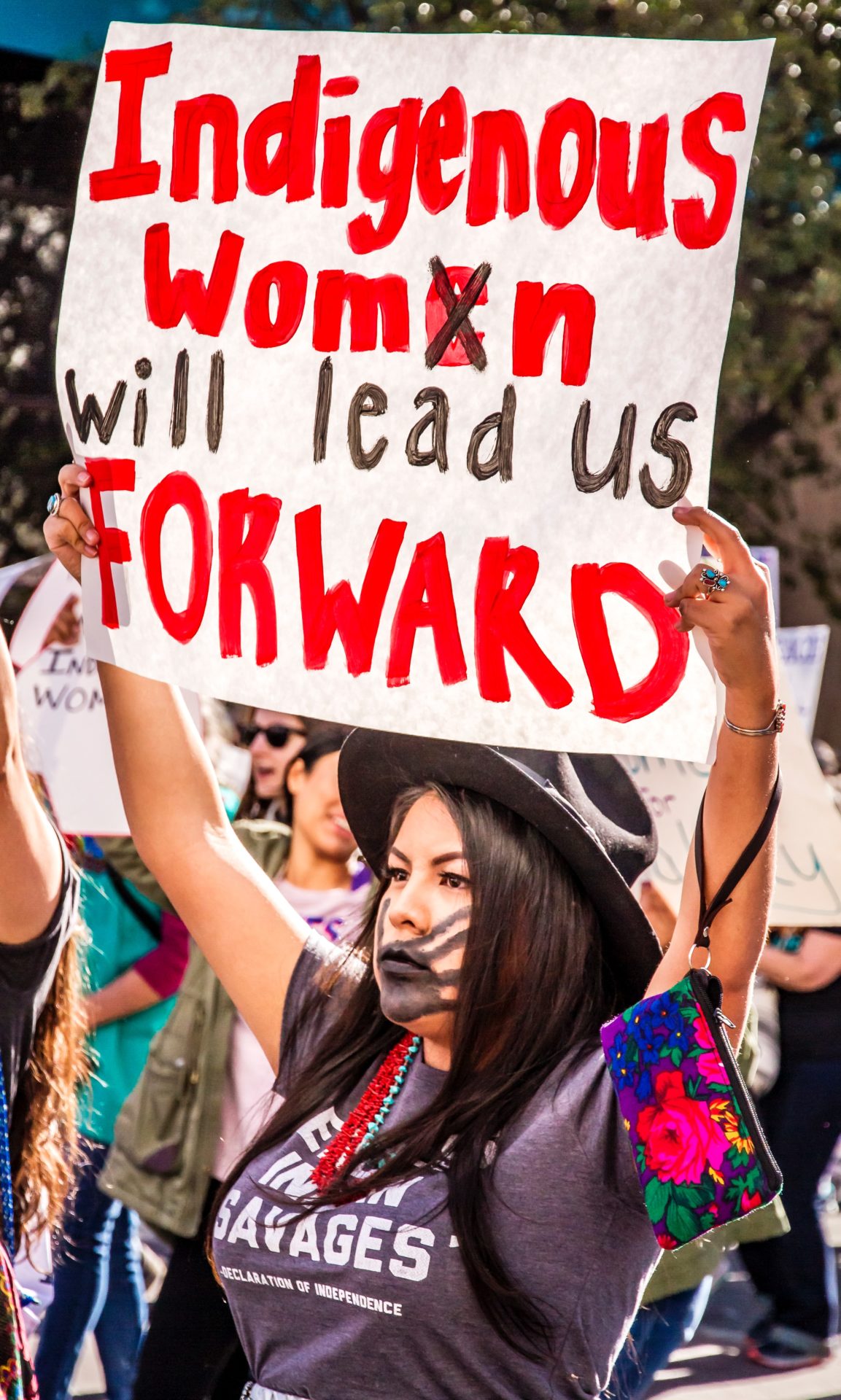by Teo Octavia Saragi, Policy Communications Coordinator
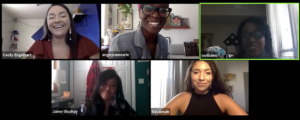
Last Thursday, October 1, Equal Pay Today! joined together with several leading Native organizations to host a fireside chat conversation discussing the overall concept of Native Women’s Equal Pay Day in general, why we observe it, what equal pay would mean for Native Women particularly during this time of the pandemic, and what is at stake for Native Women in this election.
The fireside chat featured Senator Red Dawn Foster, Member of the South Dakota Senate from the 27th District, Cecily Engelhart, Owner of Hope Nation LLC, Jaime Gloshay, Co-Founder of Native Women Lead, and Savannah Romero, Manager of Partnerships and Program at IllumiNative. It was co-moderated by EPT’s Director Shannon Williams and Angie Jean Marie, Director of Public Engagement at TIME’S UP.
Native women earn approximately 60 cents on the dollar to that of White, non-Hispanic men. Shannon reflected on this, sharing that “it is crucial that we are building strong pathways for women that will improve their economic security. Closing the gender wage gap and ensuring that women are receiving equal pay will do just that.”
Read below for additional notable points from last Thursday’s conversation, or watch the fireside chat in its entirety at the bottom of the post.
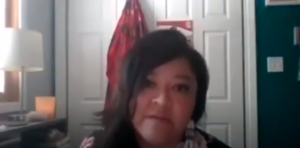
“We need indigenous knowledge and wisdom to restore balance. Representation matters: this past two years we finally saw two Native women go to Congress. Invisibility and erasure is a real problem that exists, that affects our ability to be seen, heard, and supported.
While we represent less than 1% of the U.S. population and less than 5% of the world’s population, we are actually stewards of 80% of the world’s biodiversity. Native women are the backbones of community. We are the matriarchs of our nations, and the primary economic stabilizers – being two-thirds of the primary breadwinners in our families and in our communities. We are driving economic mobility .”
– Jaime Gloshay
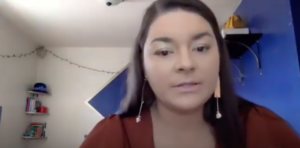
“When you look at Native people across the board, the median income is roughly $54,000. For Native women, it’s about $31,000. About 28% of Native women live in poverty, and with 50% being formally unemployed.
In addition to that, one of the things that also falls on the shoulders of Native women is the massive shift in education that we’ve seen. We have women who are working digitally, and they’re also trying to school their children digitally.
Equal pay is being able to increase the pay of two-thirds of breadwinners in Native families. It is meeting travel expenses to reach the resources that Native families need. It is the affordability of internet. It’s the difference between being able to have secure child care for your children in the middle of a pandemic. Overall, being able to have those resources: access to healthcare, child care, well-being, self-care in this time is really critical.
The Census is an opportunity for us to increase our visibility. That’s an opportunity for us to say we are here, we are still here. About 40% of people think that Native people no longer exist.”
– Cecily Engelhart
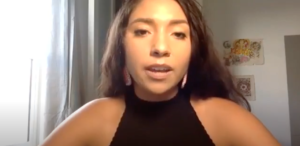
“Gender pay disparity needs to be addressed both at a policy level and at a cultural level. At a policy level, we need comprehensive equal pay reform. Policies that address gender pay inequity can look like compensated child care, family leave. It also looks like policies around pay transparency.
We have to confront the cultural biases that continue to harm women, the kind of biases that devalue their work and confine them to specific gender roles. We have to rethink the way that we define productivity and the way that we value work. We see the dehumanization of women played out in culture all the time.
Native women are incredibly engaged, highly invested in the well-being of our communities, and we’re driving economic mobility. Culturally, we need to center Native women, to see us as full dynamic human beings in media, pop culture, education, policy, and across other sectors.
Even though we’re in this incredibly difficult, unprecedented time, there’s also so much hope and space for tremendous growth, and power-building across communities of color in the U.S. The time is now, and a lot of people are really energized and ready.”
– Savannah Romero
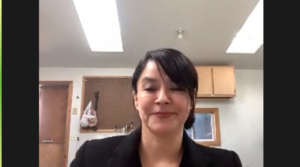
“This inequity and disparity is deeply rooted in colonization that was intended to disrupt our traditional family structures in order to force assimilation.
1 in 3 homes on the Navajo nation don’t have running water. 1 in 8 homes on the Pine Ridge reservation also lack access to clean water.
As Senator, trying to address these inequities of infrastructure – we have overcrowding, lack of access to basic things. Having to travel almost an hour to access fresh fruits and vegetables. We’re still working toward food sovereignty.
Bringing our worldview to state politics and to impact legislation, but also showing internally to our children that these are our homelands. We’re tribal citizens, state citizens, and U.S. citizens. And we have a certain responsibility. Our deep-rooted connection to the land and the water need to be represented.
We see people rising, nations rising. People saying ‘land, back! We want our sovereignty.’ Voting is about protecting our future. It’s about protecting our homelands.“
– Senator Red Dawn Foster
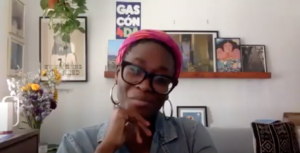
“All of our fates are tied together. The marginalization that we’ve all experienced is rooted in the same place. It reminds me how much we need to be standing alongside one another as sisters, as allies, as supporters, as co-conspirators in this collective fight.”
– Angie Jean Marie

